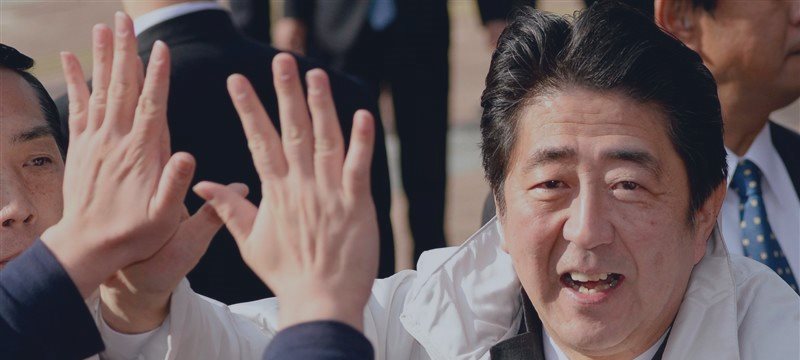
Japanese economy has slipped into recession. Again. Thanks, Shinzo!
It is the second time Japan's economy is in recession since Prime Minister Shinzo Abe took office in December 2012.
While the economy is expected to gain momentum in the current quarter, today's GDP report could put pressure on Abe and Bank of Japan Governor Haruhiko Kuroda to boost fiscal and monetary stimulus.
In the third quarter, the country's gross domestic product contracted by an annualized 0.8%, compared to a 0.2% drop seen. Quarter-on-quarter, third quarter GDP fell 0.2%, compared to an expected 0.1% drop.
Moreover, Japanese business investment has fallen for the past two quarters, marking the weakest point since the first half of 2011 when corporate planning was dropped into chaos by the nation’s strongest earthquake on record.
Seasonally adjusted non-residential business investment contracted by 1.0% in the third quarter after declining by 0.9% in the second one, according to data from Japan’s gross domestic report released on Monday. Adjusted for price changes, it was the worst back-to-back quarterly performance since early 2013.
The lower investment is a blow at Abe, who urged Japanese companies to put more of their record cash holdings into capital spending.
Inventories subtracted 0.5% from growth this quarter as companies reduced stocks that had expanded over the previous two quarters, the Cabinet Office said, while private consumption added 0.3% of growth.
Nikkei 225 was down 1.04% at close on Monday.
Abe, Amari and analysts
Weak business investment and dipping inventories drove the contraction as a downturn in China and a poor global outlook prompted Japanese companies to hold back on spending and production.
In turn, weak economic growth in Japan has driven Prime Minister Shinzo Abe's critics, who have been quick to complain that his "Abenomics" plan - a massive bond-buying program, coupled with structural reforms and stimulus from the central government - has largely failed to substantially boost economy.
Abe has made the economic recovery a priority and advocated for reflationary policies that weakened the yen and boosted corporate profits.
Earlier, Abe has told Economy Minister Akira Amari to gather measures this month to help reach his goal of expanding Japan’s nominal GDP by 20% to 600 trillion yen over five years.
After the data on Monday Amari said that an extra budget may address Japan’s demographic issues and help soothe the effects of the Trans Pacific Partnership trade pact, and the government would adapt a flexible approach to fiscal and economic management. Amari also said GDP was likely to rise in the current quarter.
So far this year, experts have been speculating that it will be necessary for the government to fire up its stimulus efforts, but central bank policy-makers have been reluctant to do so in the recent months.
Still, "we remain convinced that more monetary stimulus will eventually be needed," Marcel Thieliant of Capital Economics said in a research note.
Thieliant was convinced that the Bank of Japan will hardly announce
further measures at the end of a policy meeting this week, and instead
expects the government to wait until January.
“The BOJ should act now if they are looking at economic fundamentals:
prices are falling and economy isn’t growing, giving no sign for
inflation expectations to rise,” said Atsushi Takeda, an economist at Itochu Corp. in Tokyo.
“As for the question of whether they will act, it’s hard to say.”


